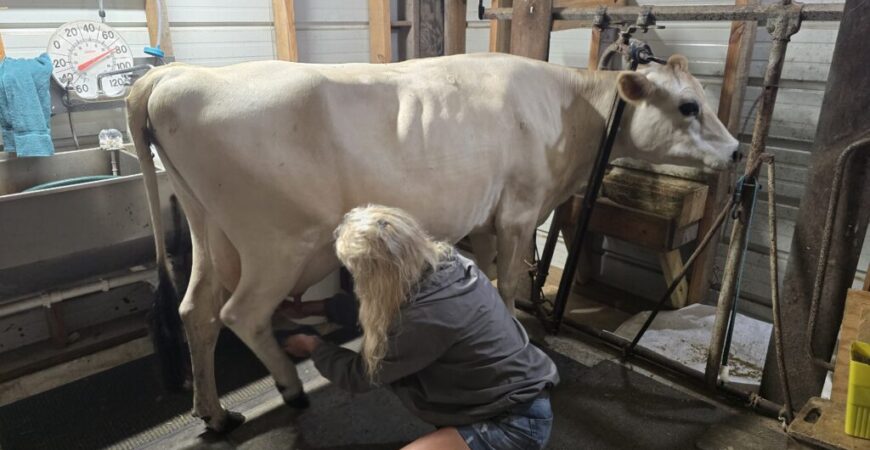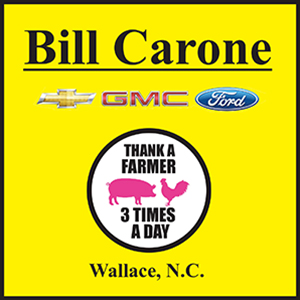In northern Duplin County, between the forks of the northeast Cape Fear River and Goshen Swamp, Kornegay Hereford Farms (KHFarms) is entering its 76th year. Cecil and Jean Kornegay started the farm in 1949 with a family of four children. The farm continued a long-standing family tradition of growing row crops and raising livestock.
Today, their youngest daughter, Karen Scalf, and her husband, Gary, continue the farm with Heritage Hereford cattle and a micro dairy of Jerseys. A wife, mother, grandmother, and businesswoman, Karen juggles many hats. To stay balanced, she starts by putting herself first, then by making decisions quickly using the C2 positive approach.
“Every decision is either positive or negative and has a compounding, cascading (C2) effect,” Scalf explained. “It is never, ever neutral.”
Mornings at the farm are a simple, repetitive process of checking and feeding the free range ducks and caged chickens. Then it’s time for milking. Jersey cows are treated to a spa treatment at the milking shed, lovingly referred to as the Taj Mahal. Clean concrete hog slats surround the entrance while the shed itself is equipped with air conditioning and commercial milking equipment. Jersey cows are massaged, cleaned, and talked to before the machine is attached to them.
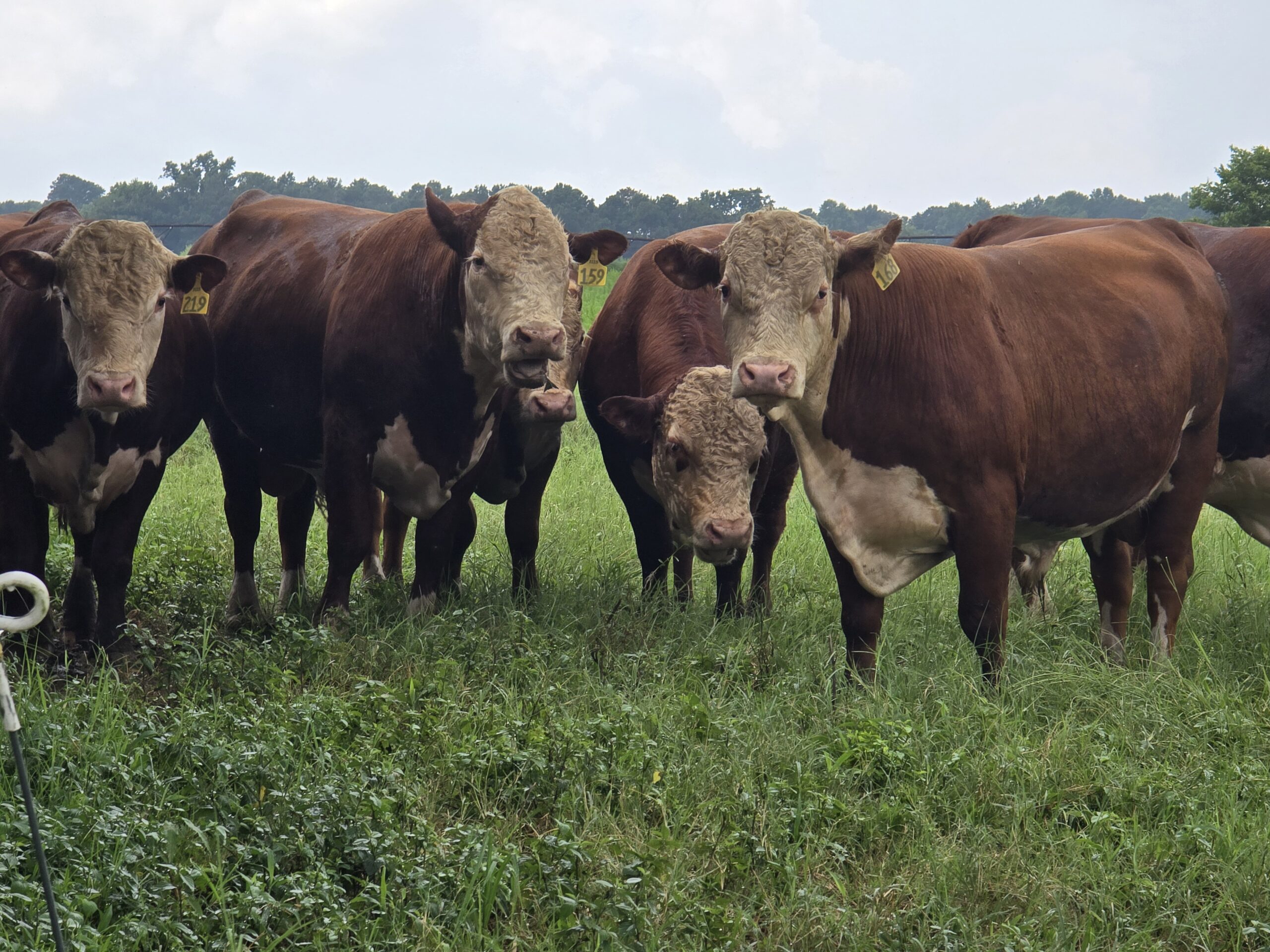
“You can try to get a cow’s milk all day long, but they won’t release it to you if they are not comfortable,” Scalf explained. “The more comfortable a cow feels and the more they like you, the more cream they release as well.”
The Taj Mahal is a welcome respite from a hot summer’s day, and the cows come in with little coaxing. The milk is collected in large stainless steel containers that are still warm to the touch after just being removed from the cow. Later in the farm store, the fresh milk will be added to a larger vat of milk where it will be cooled, separated, bottled and sold. Some of the raw milk will also be churned into butter.
This micro dairy is part of how the farm has evolved under the current leadership; however, micro dairies remain controversial and heavily regulated. The sale of raw milk is illegal for human consumption due to concerns about the potential presence of illness-causing bacteria in the milk. Bad bacteria is a risk some people are willing to take for the proposed “miracle of milk” that can only be found when milk is in its raw form. Raw milk is still a living thing; it carries beneficial bacteria and properties that support gut health, immunity and overall well-being when sourced correctly. With a small, well-managed herd on a farm practicing regenerative agriculture, KHFarms is poised to be a choice that sources raw dairy right.
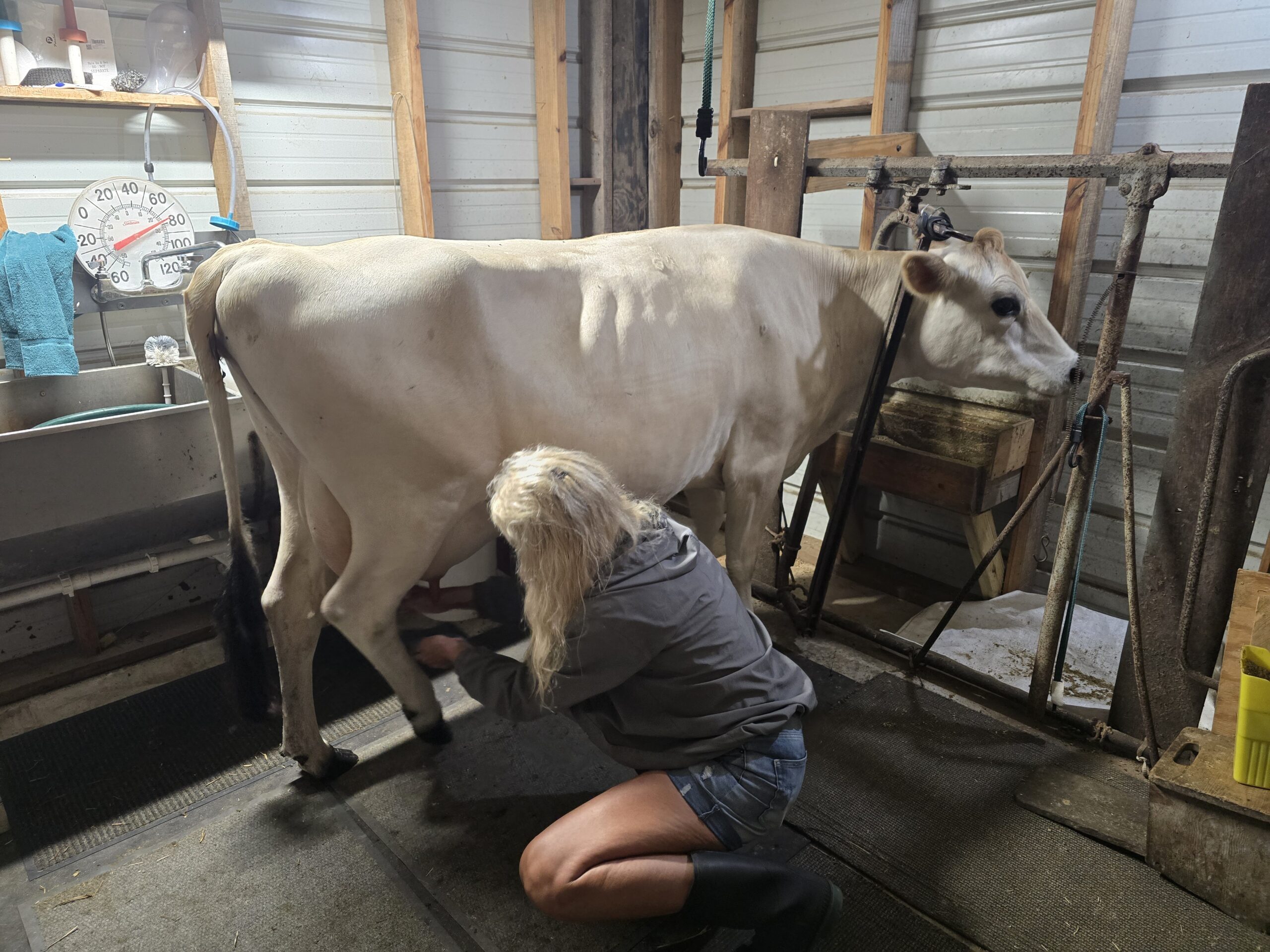
KHFarms also produces grass-fed beef for meat production. “Grass-fed beef has more oxygen in it,” Scalf explained. “Red liquid in the packaging is not blood, it’s myoglobin. It is the liquid that carries the oxygen throughout the muscles, so the grass-fed beef is more healthy and nutrient-dense. Our meat has more moisture, and it doesn’t shrink on you. We have also had customers say it dethaws faster than other beef.”
Like her father, Scalf continues to raise Hereford cattle for breeding stock, but she has also expanded the farm’s beef market through RealFoodsUnited.com. Through this business, farmers and gardeners come together to sell healthy foods and healing herbs directly to the consumer through the farm’s onsite store and website. Contributing to the food freedom movement and providing healthy food is a passion project that began with her desire to feed her own family nutritious meals.
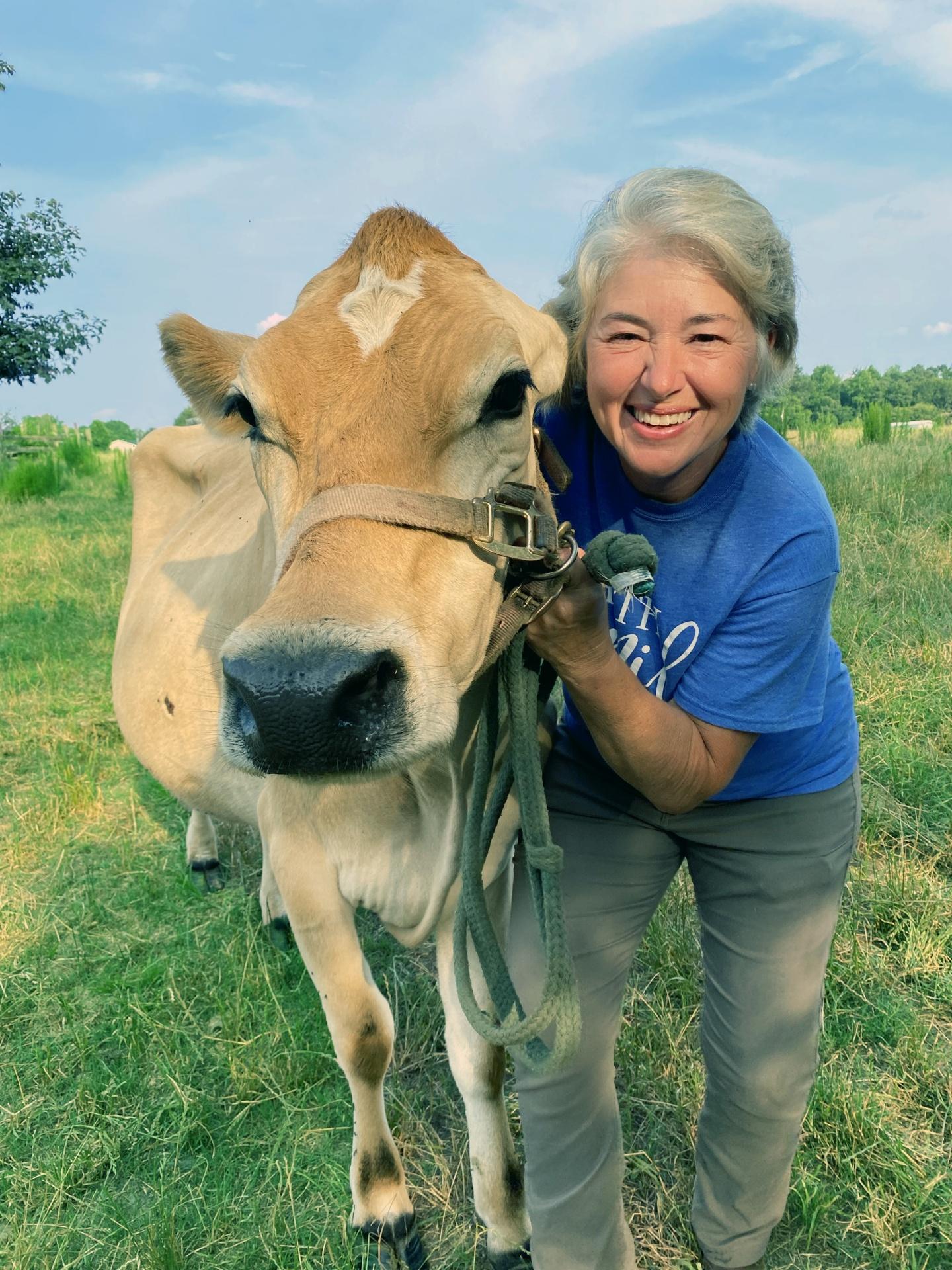
Scalf believes that quality food helps restore balance to the body.
On KHFarms, every living thing has a job to do – even the weeds.
“The weeds provide shelter for the plants and shade from the heat,” Scalf explained. “I can also tell what the soil needs by which weeds are growing in the garden.”
Good health starts with the soil and sourcing your food responsibly. Scalf has been vice president of the North Carolina Soil Health Coalition, Duplin County Farm Bureau, and the Duplin County Cattleman’s Association. Now an active member of the Farm Bureau and Cattleman’s Association, she has been a voice for agriculture and an advocate for soil health.
Taking samples of dirt directly from different fields, Scalf explained soil health.
“There is a difference between dirt and earth. Dirt is what is left after you have overproduction. It filters through your hands like sand; there is nothing holding it together. But earth has nutrients to it. It smells different. It’s darker. It has glue dirt holding the soil particles together around the roots of plants. That’s what you want to see.”
Good or bad, this quality transfers to the food that is grown in or on that ground. Good soil produces food that meets your body’s needs quicker. You consume less and live healthier on nutrient dense foods. Bad soil has little nutrients to transfer to food, so we consume more of it and never feel as full or healthy.
“Our strength as a nation does not come from a strong military, but from the ability to feed ourselves,” Scalf said. “Without food and good health, we have no defense.”
Scalf encourages people to connect with local farmers and focus on restoring their health. “What are you waiting for?” she questions. “The farmer down the road needs you as much as you need the farmer.”
 Twitter
Twitter Facebook
Facebook Instagram
Instagram
